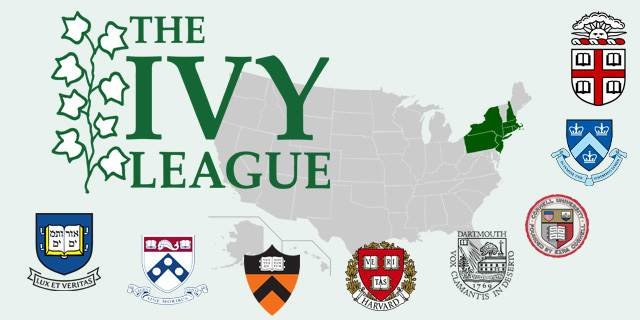When applying to universities in the United States, the term “Ivy League” is likely to come up. But what exactly does it mean, and which universities are included?
Many overseas students consider the United States a desirable destination because of its world-class colleges. Knowing what the Ivy League is and what those colleges offer can help students decide which university is best for them.
We discuss the history of the Ivy League, whose colleges are members, and how overseas students may apply.
What is the Ivy League?
The Ivy League is a group of eight private institutions in the northeastern United States. These schools were once part of the NCAA Division 1 sports league, founded in the 1950s.
These eight colleges were recognised for their highly competitive sports programmes, and as they continued to excel in athletics, they began to draw more financing, grants, and top academics worldwide. As a result, the colleges quickly earned a reputation for intellectual excellence and athletic prowess.
Why is it called the Ivy League?
The eight Ivy League institutions all have stunning, old campuses. Many people claim that the word “Ivy League” was invented in 1937, during a football game between Columbia University and the University of Pennsylvania, by sports journalist Caswell Adams. He referred to them as ancient “ivy-covered” colleges, which earned them the moniker “Ivy League.”
Which universities are part of the Ivy League?
- Brown University, Rhode Island
- Columbia University, New York
- Cornell University, New York
- Dartmouth College, New Hampshire
- Harvard University, Massachusetts
- Princeton University, New Jersey
- University of Pennsylvania, Pennsylvania
- Yale University, Connecticut
How do you apply to an Ivy League university?
The admissions procedure for Ivy League universities is complicated. Each university’s procedure is slightly different, although most have comparable requirements:
- A strong GPA
- An interest in extracurricular activities
- High SAT scores
- Letters of recommendation
- Strong candidate interviews
- Volunteering experience
Applicants’ average GPA requirement ranges between 3.85 and 4.18.
Candidates are evaluated based on more than just their grades. University admissions officers often look for proof of society, interests, and community activity. Most Ivy League colleges receive many applications each year, but each has its unique capacity and acceptance rate. The average acceptance percentage for all eight colleges is less than 11%.
How much does it cost to study at an Ivy League university?
Tuition prices for domestic and foreign students are high because these are private universities. Some of these universities presently charge an annual fee of $56,000 (£47,000).
Living expenses at some of these colleges may be rather exorbitant, with New York and Boston being particularly pricey places.
What financial aid can I receive for Ivy League schools?
The Ivy League receives significant income through contributions, alumni support, and grants. This implies that students who are approved but cannot afford to attend might obtain financial assistance.
For US citizens, all Ivy League colleges are “needs-blind,” which means that all candidates are evaluated solely on merit and can be admitted regardless of financial circumstances. The good news is that Harvard, Yale, and Princeton also give this privilege to overseas students.
Financial aid is available in numerous forms, including grants (which do not have to be repaid), work-study programmes (in which students are assisted in finding part-time jobs), and federal student loans. Harvard and Princeton both provide financial support that allows students to graduate debt-free.
What is the difference between the Ivy League and other universities?
The primary distinction between Ivy League colleges and other universities is their reputation. They have produced US presidents, actresses, authors, politicians, and business leaders such as Barack Obama, Emma Watson, Franklin D. Roosevelt, Meryl Streep, and Toni Morrison.
Their robust alumni networks are an excellent resource for students looking to expand their professional networks and find opportunities and recommendations in their chosen field.
Many graduates discover that a degree from an Ivy League institution helps them get a foot in the door to highly competitive fields like medicine and law.
However, it is crucial to note that many other colleges in the United States offer a good education. In the Times Higher Education World University Rankings, Stanford University, the University of California, Berkeley, the California Institute of Technology, the University of Chicago, the Massachusetts Institute of Technology, and many more ranks highly.


